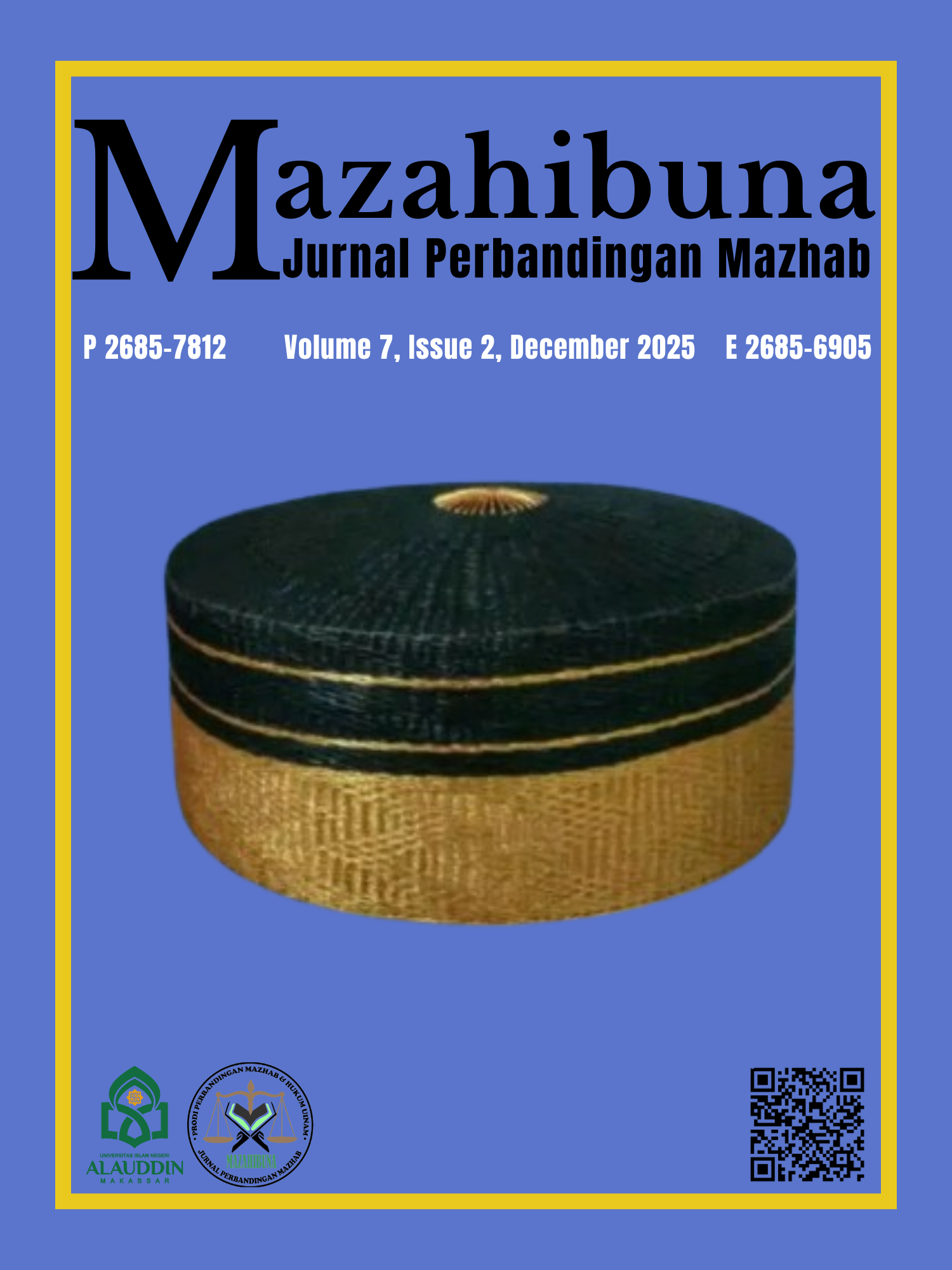Integrating Maqāṣid al-Sharī‘ah and Sustainable Development Goals in Strengthening Waqf-Based Healthcare Initiatives in Muslim Communities
DOI:
https://doi.org/10.24252/mazahibuna.vi.56433Keywords:
Waqf, Sustainable Development Goals, Healthcare, Islamic Law, Public HealthAbstract
This study aimed to explore the significant role played by Islamic waqf in advancing healthcare services as part of the broader effort to achieve Sustainable Development Goals (SDGs) introduced by the United Nations, particularly SDG 3 on good health and well-being. The purpose of this exploration is simply to analyze how waqf functions as a sustainable financial mechanism in funding hospitals, supporting medical studies, and delivering essential health services to marginalized populations in Muslim communities. Adopting a descriptive-analytical methodology, this study draws on primary and secondary data sources, including waqf management reports, government publications, health policy documents, and peer-reviewed academic literature. Furthermore, case studies from Brunei Darussalam, Indonesia, Malaysia, and Turkey were used to show practical implementations of health-related waqf initiatives. The obtained results showed that waqf significantly contributed to addressing healthcare gaps, reducing inequality, and promoting equitable access to medical services. During the course of the investigation, Waqf institutions were found to embody Islamic principles of stewardship (istikhlāf) and reform (iṣlāḥ), offering a faith-based approach that corresponded with contemporary development frameworks. This study presents an original contribution through its integration of Islamic legal thought and global development paradigms, culminating in a conceptual model for health-waqf correspondence with SDGs targets. The obtained results showed that revitalizing health-focused waqf initiatives can strengthen public health systems in Muslim-majority communities, thereby providing an ethical, culturally resonant, and economically viable path toward sustainable development.
References
Abbasi, M., Majdzadeh, R., Zali, A., Karimi, A., & Akrami, F. (2018). The Evolution of Public Health Ethics Frameworks: Systematic Review of Moral Values and Norms in Public Health Policy. Medicine, Health Care and Philosophy, 21(3), 387–402. https://doi.org/10.1007/s11019-017-9813-y
Abbasi, M. Z. (2012). The Classical Islamic Law of Waqf: A Concise Introduction. Arab Law Quarterly, 26(2), 121–153. https://doi.org/10.1163/157302512X629124
Abdullah, R., & Ismail, A. G. (2017). Taking Stock of the Waqf-Based Islamic Microfinance Model. International Journal of Social Economics, 44(8), 1018–1031. https://doi.org/10.1108/IJSE-06-2015-0176
Afrin, A. B., & Mohiuddin, M. G. (2024). Total Quality Management: An Islamic Perspective. In Islamic Operations Management (pp. 96–118). Routledge.
Alotaibi, H. H. S. (2021). A Review on the Development of Healthcare Infrastructure Through the History of Islamic Civilization. Journal of Healthcare Leadership, 13, 139–145. https://doi.org/10.2147/JHL.S315323
Downloads
Published
How to Cite
Issue
Section
License
Copyright (c) 2025 Cecep Soleh Kurniawan, Hafini bin Mahmud, Hajah Mas Nooraini Binti Haji Mohiddin

This work is licensed under a Creative Commons Attribution 4.0 International License.

This work is licensed under a Creative Commons Attribution 4.0 International License.
Authors who publish with Mazahibuna: Jurnal Perbandingan Mazhab agree to the following terms:
- Authors retain copyright and grant the Mazahibuna: Jurnal Perbandingan Mazhab right of first publication with the work simultaneously licensed under Creative Commons Attribution License (CC BY 4.0) that allows others to share the work with an acknowledgment of the work's authorship and initial publication in this journal.
- Authors can enter into separate, additional contractual arrangements for the non-exclusive distribution of the published version of the work (e.g., post it to an institutional repository or edit it in a book), with an acknowledgment of its initial publication in this journal.
- Authors are permitted and encouraged to post their work online (e.g., in institutional repositories or on their website) before and during the submission process, as it can lead to productive exchanges, as well as earlier and greater citation of published work.










